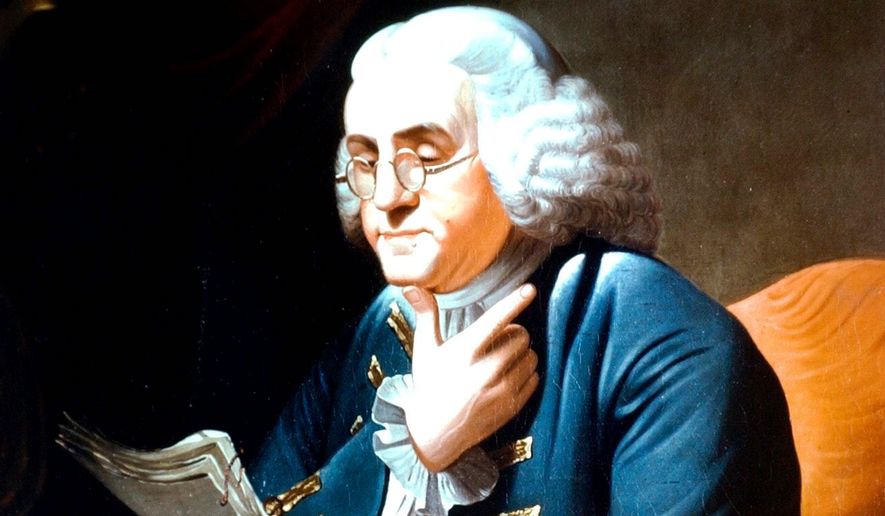OPINION:
Barack Obama, regarded by the alt-left as the alt-president, was back home in Indonesia for the Fourth of July holiday, and there’s clearly something in the water in the Islamic world. Whatever it is, it brings out the missionary in the man that most of us regard as merely a former president.
No sooner had Michelle unpacked the family suitcases eight years ago than Mr. Obama ordered up Air Force One and hurried off to Cairo to make his famous apology to the Muslim world for all the manifold sins America has inflicted on the followers of Muhammad.
He stood in the great hall of Cairo University to tug at his imaginary forelock — this after a bow to the Islamic world so deep that he just missed banging his head on the floor — and told thousands of assembled Muslims that “no single speech can eradicate years of mistrust.”
But he proceeded to try. He used the traditional Muslim greeting, “assalamu alaykum” and spiced his remarks with quotations from the Koran. “The holy Koran,” he called it, with the pronunciation of the believer he learned as a boy in Indonesia, and assured them that “I know civilization’s debt to Islam.”
He did not remind them that the debt has been marked “paid in full” with the blood of the thousands who have died in the many expressions of “radical Islamic terror.”
“He showed understanding,” in the rapturous account of one London newspaper, “if not always acceptance of what one might call the Arab and Muslim narrative.” The speech included ample references to “dignity” and “justice” against “humiliation,” words that “resonate in Muslim discourse.” Self-pity is for sale by the pound throughout the Arab world.
Mr. Obama poured it on in Cairo, demonstrating the hostility toward Israel and the Jews that would become a constant theme over his two terms in the White House. He overruled several aides who urged him not to use the word “occupation” to describe Israel’s takeover of territory gained in the Six-Day War in 1967.
Eight years on, Mr. Obama resurrected the spirit of Cairo in his remarks preceding the Fourth of July in Jakarta. He warned the world, and by unmistakable implication the United States and Donald Trump in particular, of the dangers of “an aggressive kind of nationalism.”
“It’s been clear for a while that the world is at a crossroads,” he said. He recalled growing up in Indonesia and marveled at how the nation had prospered in the years since. But some countries, some developed and some less so, have adopted a more aggressive and isolationist stance. “If we don’t stand up for tolerance and moderation and respect for others, if we begin to doubt ourselves and all that we have accomplished, then much of the progress that we have made will not continue.
“What we will see is more and more people arguing against democracy, we will see more and more people who are looking to restrict freedom of the press, we’ll see more intolerance, more tribal divisions, more ethnic divisions, more religious divisions and more violence.”
Well, hear! hear! Who among us would disagree with any of that? What the former president might have said, but didn’t, is that the critics of democracy (his own true believers) are the red-hots who want to shut down debate on campus, who would restrict freedom of the press to those who keep control of that freedom and dispense it by the teaspoon as they see fit.
Since he was critiquing everybody, he might have acknowledged his own as the exceptional nation that practices none of the sins he enumerates, and applies by implication to the government of his successor. “The challenges of our times,” he said, “whether economic inequality, changing climate, terrorism, mass migration — these are real challenges, and we’re going to have to confront them together.”
But it’s individual nations — we’re looking at you, America, Israel, Canada, Great Britain — that turn out to be the nations that secure the rights of their people. Confronting challenges to personal freedom is a task most of the nations of the world hardly recognize as something useful.
“Had Samuel Adams, Thomas Jefferson, John Hancock, John Adams and Benjamin Franklin shared Mr. Obama’s aversion to ’aggressive nationalism,’ ” observed Ira Stoll in the New York Sun on the eve of Independence Day, “they would all have been a lot less likely to pledge their own lives, fortunes and sacred honor to what was, after all, a war for the cause of starting a new country.”
You can say that again. The alt-president and his followers of the alt-left surely won’t. But those are words we all live by on this, and every Independence Day.
• Wesley Pruden is editor in chief emeritus of The Times.




Please read our comment policy before commenting.